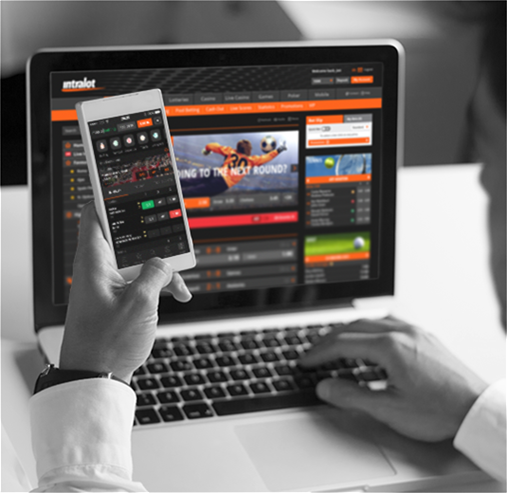The realm of sports betting is rapidly growing and improving thanks to innovative sports technology. In the past, the onus was on the referee or linesman to make a call that could make or break a football game or tennis match. Nowadays, we have cameras, sensors and wearable tech that can be used to back-up the ref with accuracy and precision. Sporting events across the board are benefiting from these advancements in technology, as are betting sites and online bookmakers. More and more punters are drawn to sports betting – gambling websites available to players are vast and various and, thanks to technology like 5G, are likely to become more exciting than ever in the near future. No doubt the world of online betting will benefit from a plethora of sports-related innovations that we are likely to see in the near future.
5G
The arguments for and against the roll out of 5G have been furiously debated in recent months, and while those against 5G have many valid points, the benefits of 5G are undeniable. Sports betting, in particular, is likely to reap huge benefits from 5G technology. 5G will allow media and gaming companies to live stream sports events with greatly reduced latency. This means that punters will be able to watch events and make bets in real time on their mobile device. Mobile betting is rapidly outpacing desktop betting and 5G will undoubtedly increase the distance. Online bookmakers have offered live betting for some time and it’s proved to be extremely popular among punters – but there were limitations due to slow connections and because not all events were deemed worthy enough for live streaming by media outlets. 5G opens the door for more stadiums to connect directly with online betting sites.
5G also paves the way for more advanced wearable tech that will help to improve training programmes for players, which in turns leads to greater safety on the field. But more on that later in the article.
Related: Nigeria: The Land Of Sports Betting ‘Gold Rush’
Sensors and Timers
As we said earlier, the onus on the ref to make the final call has been lifted thanks to sensor technology. Strategically placed sensors on a football field and tennis court, for example, can now definitively prove whether or not a ball is in or out – no more McEnroe-style tantrums courtside – or whether a football has gone over the goal line or a cricket ball was on course to hit the wicket before being blocked. Sensor tech is a game changer and it means that punters can place bets with more certainty that the outcome will at least be fair – they might still lose the bet, but they won’t be able to dispute it.
Precision timing is now possible thanks to vastly improved timers. In the past, we relied on the reaction time of a person in order to start the timer for a race – this, of course, led to discrepancies. Today, a timer is linked to a starter gun, which means the time lag between the gun going off and the person pressing start on the timer is removed. With this simple technology, runners get an accurate reading of their time, which is particularly important when aiming to break a world record.
Instant Replay
Instant replay technology has also made waves in sporting arenas throughout the world. Well-placed cameras capture a sporting event, such as American football, rugby or cricket and should a dispute arise between players or between players and the ref, instant replay can be used to see exactly what happened on the field. This tech has truly been a game changer in the world of sports. Arguments regarding the offside rule or whether a penalty should be awarded are easily subdued thanks to this tech, although spectators are often infuriated by it.
Wearable Tech
In comparison to sensors and instant replay tech, the development of wearable tech is still in its infancy. We’ve all been amazed and possibly dismayed by the wearable smartwatch fitness tracker that counts our steps and entreats us to be more active, but this everyday tech is just the tip of the iceberg. Wearable tech is also used to help determine performance on a more professional level than the basic fitness tracker. We’ve seen the introduction of RFID chips that precisely determine the speed and location of individual runners in a race as well as wearable inertial sensors that help swimmers analyse their performance.
Wearable tech is now becoming synonymous with safety, particularly on the American football field. For example, concerns for the immediate safety of players as well as the long-term effects of sustained and regular hits to the head have led to a new breed of helmet with specially designed shock absorbers; technology that also benefits racing car drivers and hockey players.
We’ve also seen advancements in the type of wearable tech that can be used by coaches to monitor their player’s performance both during games and training sessions. As previously mentioned, 5G is going to improve the performance of wearable tech considerably. A GPS kit, for example, includes a wearable vest and small monitor that relays information, such as heart rate, distance, top speed, bursts of speed and temperature back to the coach. This relates to safety because this info can help coaches determine the best training programmes for their players in order to avoid injury and burn out.
Behaviour Analytics
All the tech we’ve mentioned has led to an increase in sports betting thanks to greater access, more definitive results and better performance by athletes across the board. Betting on a sporting event is exciting, fun and potentially lucrative; and as sporting events improve, sport betting becomes an even bigger business.
The last tech we’ll mention, therefore, is one that has been recently introduced to gaming machines, such as slot games and video poker machines. The Anonymous Player Awareness System, or APAS, is used to determine whether a player is veering into dangerous, reckless or out of control gambling by analysing their behaviour while they play. Any player deemed to be worrisome is automatically shut out of the game for a specific period of time in order to ‘cool off’. Should this tech prove effective, it could be applied to online betting sites and online bookmakers in order to ensure that no player’s sports betting habits get out of control. Whether or not this will be welcome by the punters themselves is yet to be seen.







